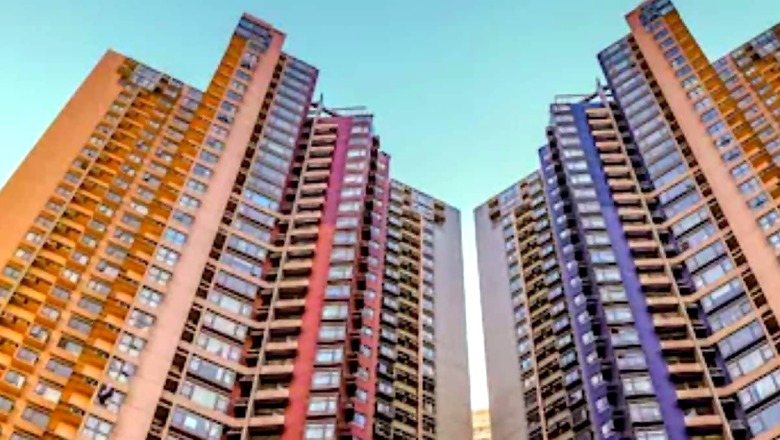
views
Mumbai is one of India’s priciest cities for rental housing, with the average annual rent for a 1 BHK apartment reaching Rs 5.18 lakh (Rs 43,167 per month), according to a report by CREDAI-MCHI, an industry body for real estate developers. This rent surpasses the average annual salary of junior-level employees, which stands at around Rs 4.49 lakh. According to the rent, the high rental costs in Mumbai may lead to a ‘brain drain’, as professionals might relocate to more affordable cities for financial stability.
Comparatively, the annual rent for a 1 BHK in Bengaluru and Delhi-NCR is almost half, at ₹2.32 lakh and ₹2.29 lakh, respectively. While junior-level employees in these cities earn annual salaries of ₹5.27 lakh and ₹4.29 lakh, respectively, Mumbai’s negative disposable income poses challenges for covering basic living costs.
Impact on Mid-Level Employees
Mid-level professionals in Mumbai, who typically rent 2 BHK apartments, earn an average salary of ₹15.07 lakh per year, but spend roughly ₹7.5 lakh on rent. In Bengaluru, similar employees earn ₹16.45 lakh annually and spend ₹3.90 lakh on rent, while in Delhi-NCR, the average salary is ₹14.07 lakh with rent costs around ₹3.55 lakh. The financial burden in Mumbai forces many mid-level employees to spend significant portions of their salaries on rent, leaving little for savings, and requires long commutes that negatively affect work-life balance and productivity.
Challenges for Senior-Level Employees
Senior employees in Mumbai, who typically rent 3 BHK apartments, earn an average salary of ₹33.95 lakh, but face annual rent costs of ₹14.05 lakh. In contrast, senior professionals in Bengaluru earn ₹35.35 lakh, spending ₹6.25 lakh on rent, while in Delhi-NCR, they earn ₹30.73 lakh and pay ₹5.78 lakh in rent. As a result, many senior employees are migrating to more affordable cities for a higher quality of life and increased disposable income. This trend could potentially cause a talent drain, challenging businesses in Mumbai to attract and retain skilled professionals.
High Costs in Mumbai’s Real Estate Market
The report notes that Mumbai’s approval costs for residential real estate projects are 25 times higher than in Delhi-NCR, 50 times more than Hyderabad, 47 times higher than Bengaluru, and 9 times more than Chennai and Pune. Developers pay an average of ₹54,221 in premiums to develop one square meter in Mumbai, compared to ₹2,166 in Delhi-NCR and between ₹1,071 and ₹5,466 in other major cities.
These high approval costs make affordable housing projects unfeasible for developers, contributing to Mumbai’s unaffordable housing landscape and reducing real estate investment.
Potential Risks for the City’s Future
Mumbai currently has over 1,671 ongoing infrastructure projects, including the metro rail, Trans Harbor Sea Link, and Coastal Road, with estimated costs nearing ₹25.56 lakh crore. However, if the cost of living remains prohibitive, residents might relocate to more affordable cities, potentially leading to underutilization of these projects.
Niranjan Hiranandani, a prominent real estate developer, recently highlighted on social media that homebuyers in Mumbai pay nearly 50% of the property cost in taxes, including GST, stamp duty, and FSI rates. This heavy tax burden makes it challenging to offer affordable housing in the city.




















Comments
0 comment